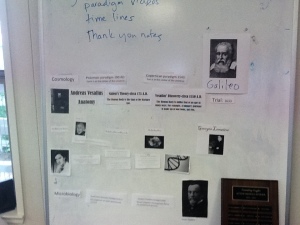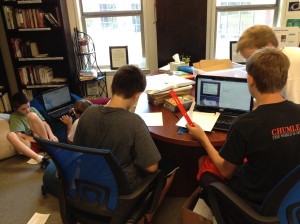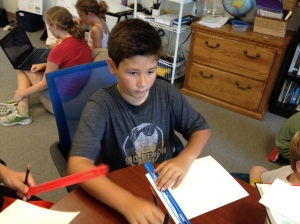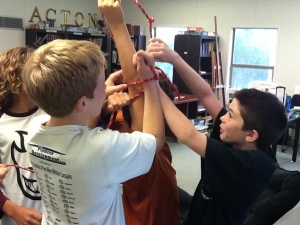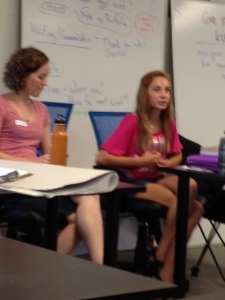A pretty amazing two days of scientific experimentation “in the wild.”
We started our scientific expedition with a Socratic discussion on the one hour drive to the ranch. Eagles debated: (a) which of the six experiments we would conduct was the most important to the world (see previous post); (b) whether or not it would be because of the sheer value of discovery, invention or innovation; and (c) whether the scientific role of Paradigm Buster; Puzzle Poser or Data-Gatherer best suited their personal gifts.
Eagles also practiced their “paradigm video” stories, and in each car we developed “rules of engagement” as to how scientists would act on a real expedition (these would be combined to determine how we worked with each other on the trip.)
As soon as we arrived, it was time for science – and the chance to earn the ingredients for smore’s by solving scientific puzzles . Some photos from a few of the real world challenges:

Using trigonometry to find the height of a tree (also helpful for navigation.)

Levers – “Give me a place to stand and I’ll move the world!”
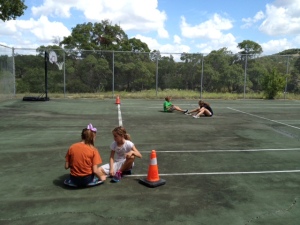
Using the Pythagorean theory for surveying.
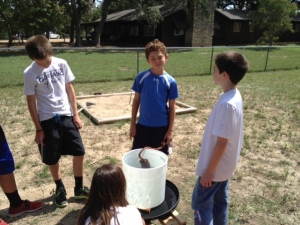
Archimedes and buoyancy: “Is the crown pure gold or not?”
Even scientists need some fun – so we took a break for obstacle course practice and a swim in the river.



Below, Mr. Temp leads a Hero’s Journey session about picking role models for Stars and Steppingstones interviews.
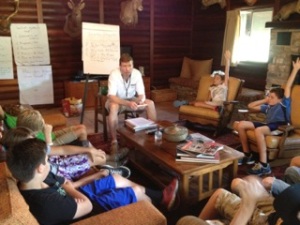
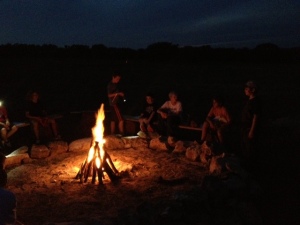
Above, our experiments with Radians and the Heavens is thwarted by an overcast, but we were entertained by star gazing myths, smore’s and the Eagles’ gratitude moments. Some of us even got a few hours of sleep.

We ended the trip with a pre-dawn ceremony at the top of Lone Mountain – 360 degree views for miles around — with each Eagle leaving his or her gratitude object, and seeing for the first time the Founding Eagle’s plaque that will forever mark the pioneering efforts of this first Eagle Middle school class.
Then it was back to Austin, on the way listening to stories about Archimedes, Copernicus and Galileo, in preparation for next week’s debate. (And yes, a few Eagles even took a nap when we got back.)
Many thanks for all the parents and Guides who joined in for the adventure!
3. Finally, and most importantly, ask what behaviors would be appropriate for a scientist on an important scientific mission. Ask one student to keep a list that we can discuss when you arrive.



